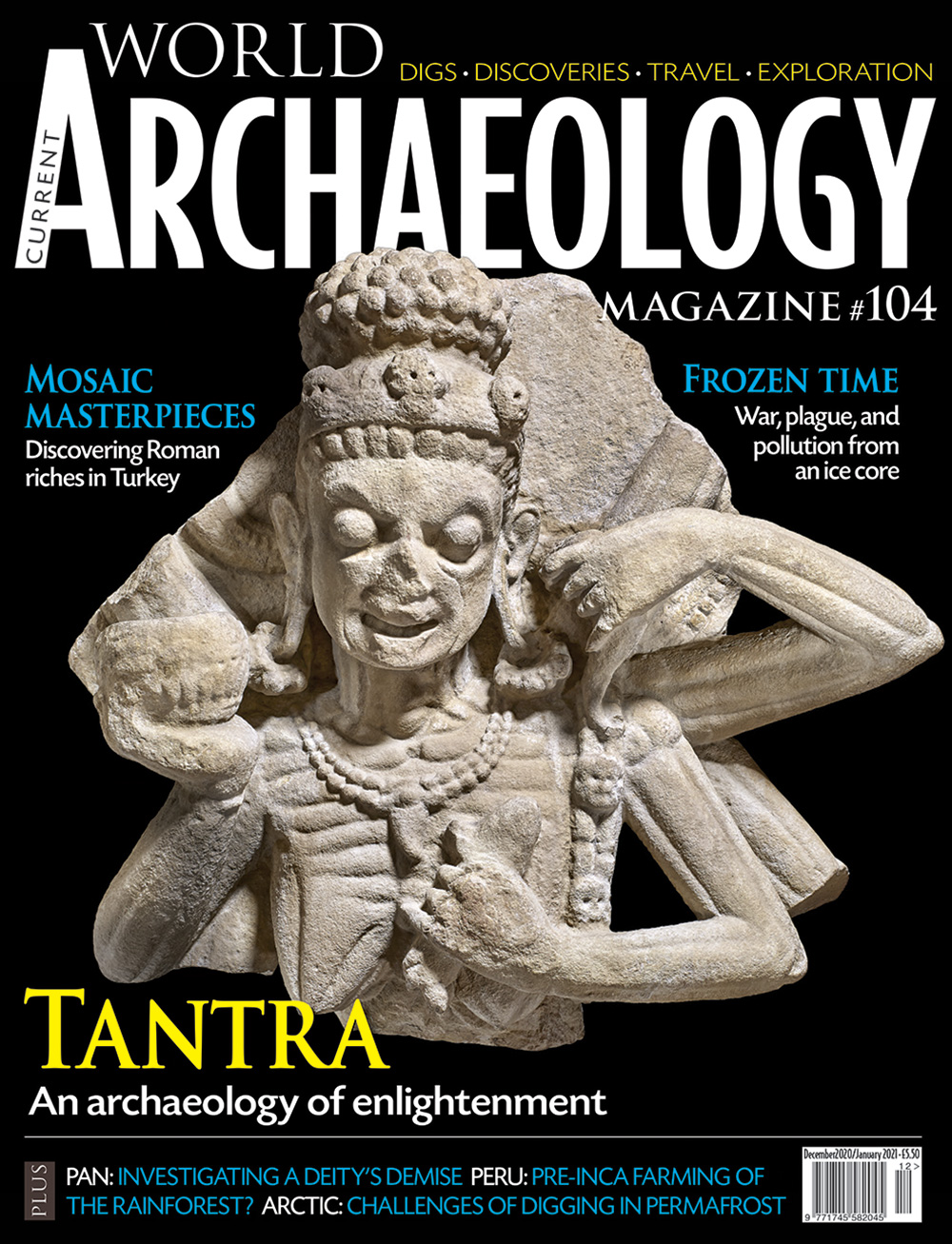Tantra has inspired striking imagery: heavily armed gods and goddesses committing violent carnage while adorned with human body parts, or enacting acrobatic acts of union. To the initiated, these graphic scenes often symbolise victories over internal obstacles, such as greed, or the coming together of wisdom and compassion. Others, though, have taken this art at face-value and judged it a product of demon worship, raising fascinating questions about how we should interpret ancient imagery more generally.
Groundbreaking study of an ice core from the Swiss-Italian Alps is allowing us to look at European history in new ways. Information preserved in annual layers of ice is revealing past pollution and environmental conditions over thousands of years. As well as shedding new light on the impact of the Black Death, it has shown that the misery of the First World War was aggravated by a climatic anomaly inflicting cold weather and rain.
A Roman mosaic discovered in Turkey has also proved exceptional, in this case by virtue of its size. The vast composition can stake a claim to being the largest surviving Roman pavement currently known. It is just one of several mosaics discovered during construction work on a hotel.
In Peru, deforestation has brought a new site to light in an area of tropical rainforest. It is well known that upland civilisations, such as the Incas, developed a taste for goods from the tropical lowlands, raising questions about what this freshly discovered complex can reveal about who was farming the rainforest.
Another unexpected find, this time made during construction of an Albanian anti-aircraft battery in 1981, is explored in our travel section. A statuette of Pan and other traces of the god’s cult in the region help lift the lid on the circumstances surrounding the story of the deity’s demise. Meanwhile, fieldwork conducted in the Arctic last summer offers a sense of what it is like to dig in permafrost.

